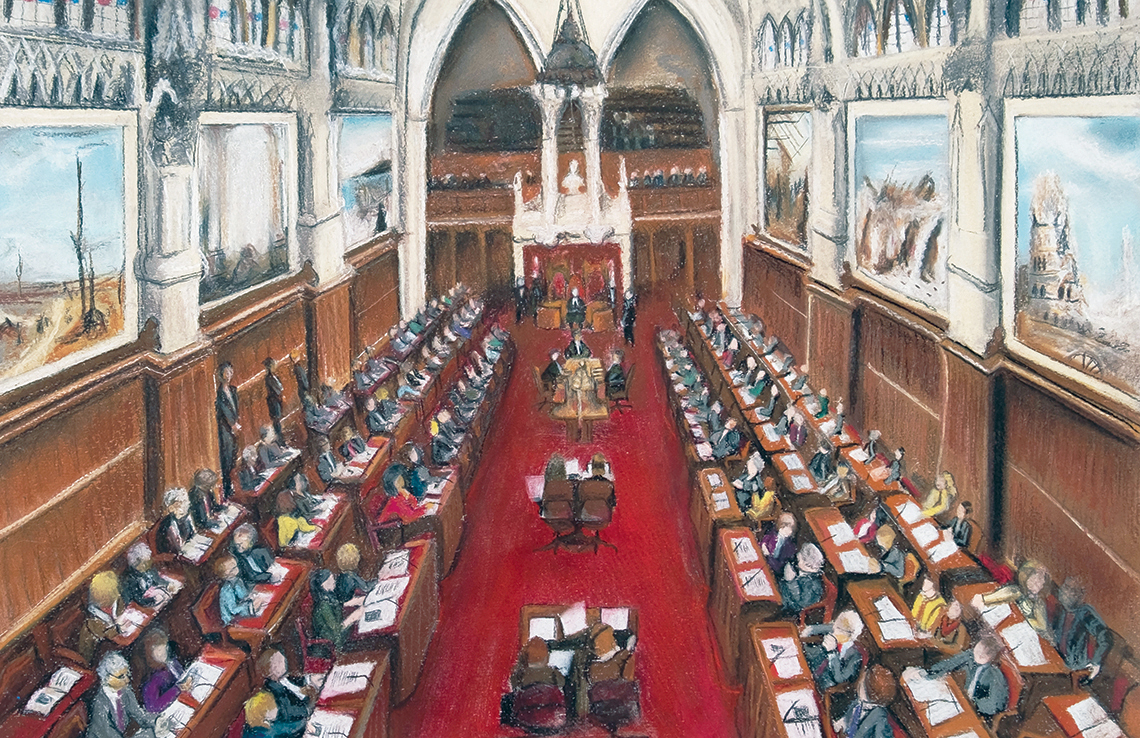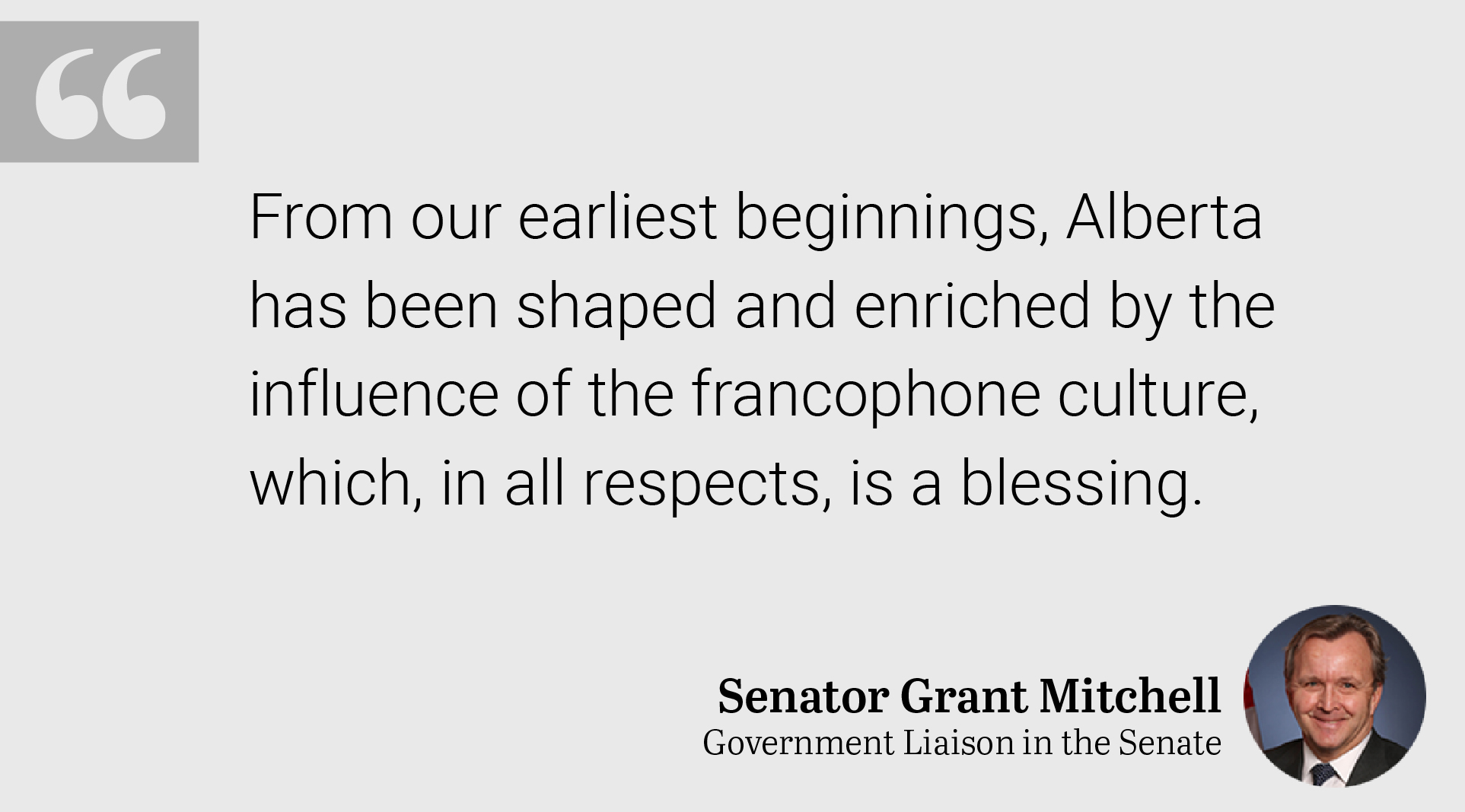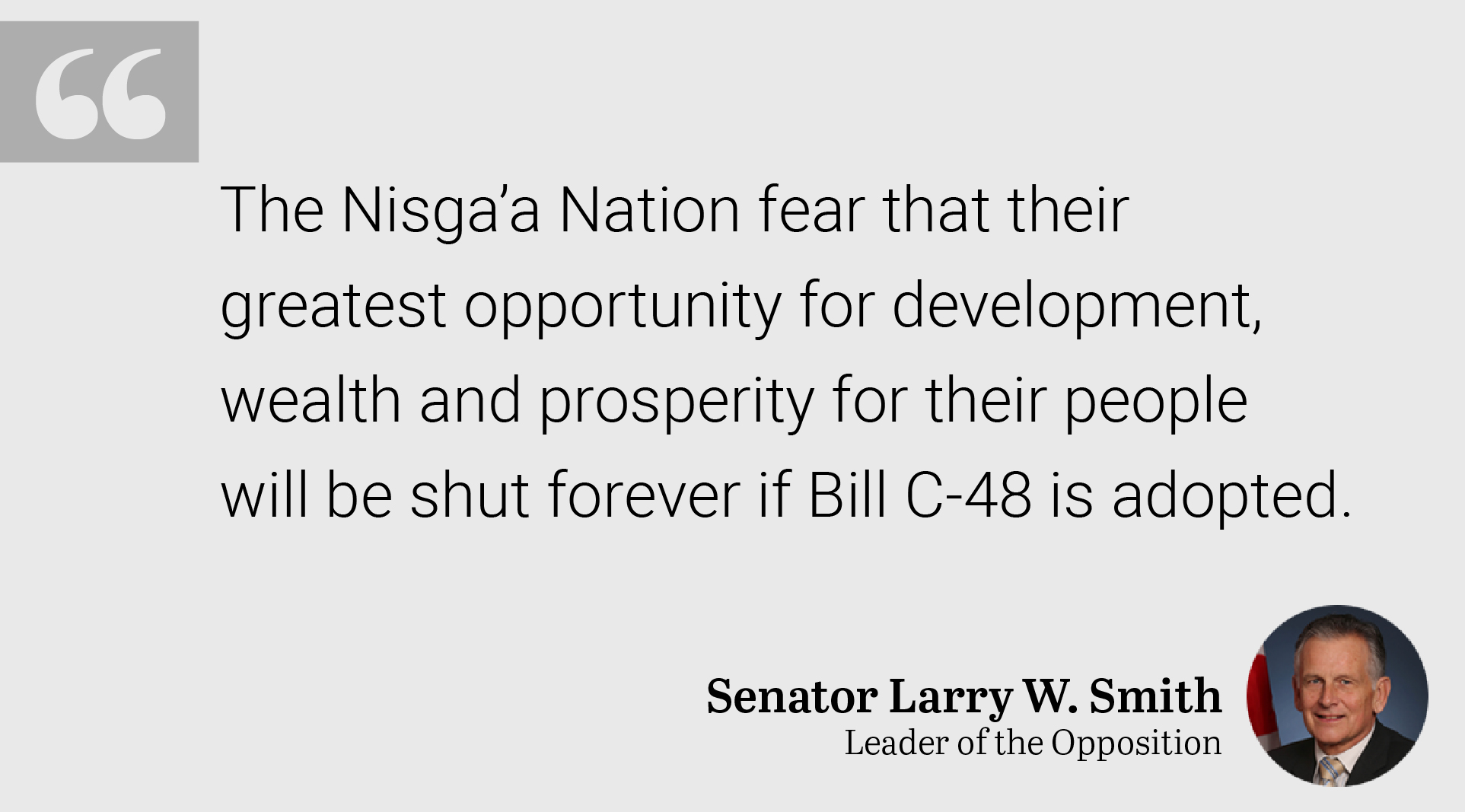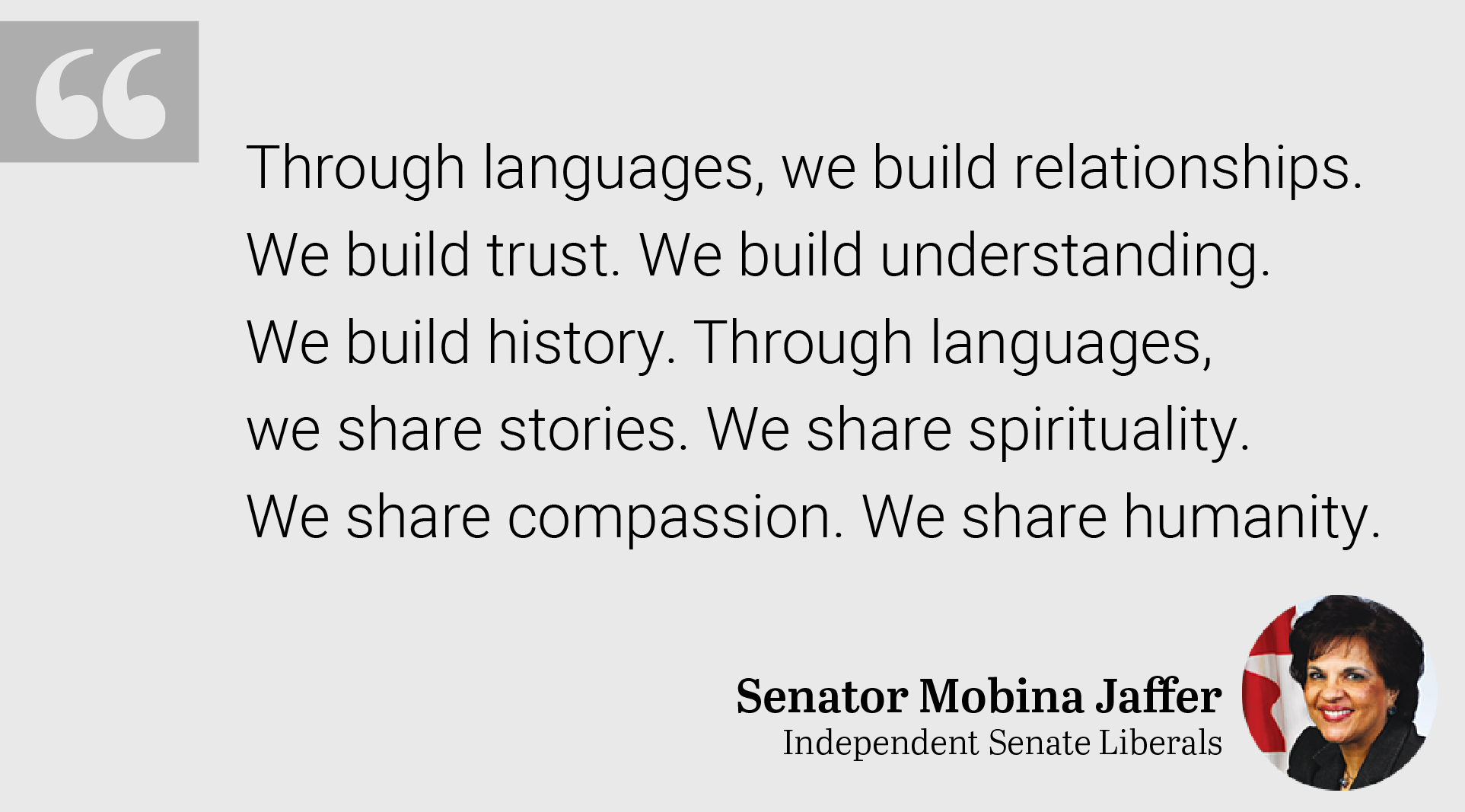Perspectives — December 3-7, 2018

Last week in the Senate: designating February 21 as International Mother Language Day, the Oil Tanker Moratorium Act and reaffirming the importance of Canada’s official languages.

Government
Recently, Senator Julie Miville-Dechêne introduced Motion 410, which reaffirms the importance of both official languages as the foundation of our federation, reminds the government of Canada of its responsibility to defend and promote language rights as expressed in the Canadian Charter of Rights and Freedoms and the Official Languages Act and urges the Government of Canada to take all necessary measures, within its jurisdiction, to ensure the vitality and development of official language minority communities.
I, along with many of my colleagues, support this reaffirmation, given that it fulfills the Senate’s specific role of defending the rights of minorities, reinforcing the importance of Canada's linguistic and cultural diversity, and standing up to adverse forces that could weaken these gains.
In my home province of Alberta, the importance of the French language throughout history cannot be overstated. From our earliest beginnings, Alberta has been shaped and enriched by the influence of the francophone culture, which, in all respects, is a blessing.
I am proud that the Alberta government has recently made a point of acclaiming, recognizing and building on the gift of the French language and francophone culture for all of us in Alberta and across Canada.
Canada’s francophone communities enrich us in many ways. I encourage the Senate to pass Motion 410 without delay, to demonstrate our support for the protection and advancement of the rights of francophones throughout the country and defend the importance of the French language and francophone culture that help shape who we are as Canadians.

Opposition
Last week, I was pleased to meet with representatives of the Nisga’a Nation of the north coast of British Columbia, including Eva Clayton, president of the Nisga’a Lisims Government.
The Nisga’a made it very clear that they do not support Bill C-48, the Oil Tanker Moratorium Act, in its current form.
The Nisga’a told us they were not consulted, the government did not conduct a comprehensive environmental impact assessment and this bill seriously jeopardizes their future economic development.
They also believe the tanker ban overrides their treaty principles and right to self-determination — rights this government claims to support.
The Nisga’a representatives told us last week that they do not understand why they are being singled out for a tanker ban. Eastern Canada and southern British Columbia safely handle immense volumes of tanker traffic.
Despite a claim made by Senator Harder in his second reading speech on December 11, 2018 that there is widespread Indigenous support for this bill, the Nisga’a made it very clear that tanker ban proposal is discriminatory and arbitrary.
The Nisga’a Nation fear that their greatest opportunity for development, wealth and prosperity for their people will be shut forever if Bill C-48 is adopted.
I am concerned that this government is drawing an arbitrary line between the south and north coasts of British Columbia, and bullying Indigenous governments who are trying to improve their standard of living. Canada’s First Nations deserve better.

Senate Liberals
To date, there is no recognition of our multilingualism. Let us change this. Canada is home to more than 200 languages, including more than 60 different Indigenous languages, and together we can celebrate our language-speaking strengths.
To demonstrate how valuable languages are, I would like to share a statement from the United Nations:
“Languages are the most powerful instruments of preserving and developing our tangible and intangible heritage. All moves to promote the dissemination of mother tongues will serve not only to encourage linguistic diversity and multilingual education but also to develop fuller awareness of linguistic and cultural traditions throughout the world and to inspire solidarity based on understanding, tolerance and dialogue.”
Bill S-247 is a legislative proposal to designate February 21 as “International Mother Language Day.” For greater certainty, the day is not a legal holiday or a non-juridical day. This bill does not dispute that English and French are Canada’s official languages.
International Mother Language Day is not only a day to highlight heritage languages in Canada; it is also a day to preserve cultural and linguistic heritage. Linguistic diversity benefits Canada in many ways. Multilingualism preserves cultural and linguistic heritage, it strengthens us as Canadians, since it is at the root of our identity, and it distinguishes us from other countries around the world.
Through languages, we build relationships. We build trust. We build understanding. We build history. Through languages, we share stories. We share spirituality. We share compassion. We share humanity.


